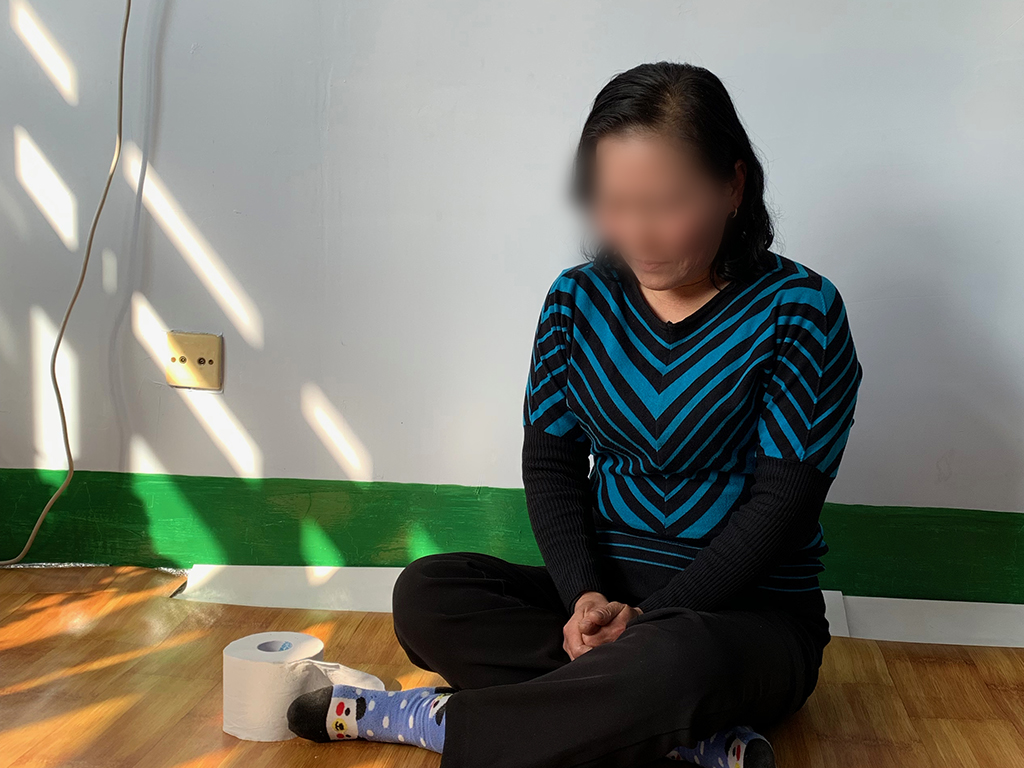Jessica with other North Korean refugees.
Through Elim House, we have had the chance to see a wide range of needs of North Korean refugees. Jessica came to us in December of 2022 and, unlike the other refugees who we’ve met, she did not have a great financial need. Instead, she came to us because of her emotional state. She said that she needed the emotional support of a community that cares for her.
It is unclear how she has made her money and it seems as if she doesn’t work much. Her backstory changes on a daily basis and it does seem like she has some emotional trauma. She spends hours and hours each week with our staff. Through this time, it is our hope that she would know that she is loved by God and that she would get the emotional help that she needs.
In North Korea, Jessica’s father worked near the Demilitarized Zone where he made missiles for the regime, and as a result, her family lived well. When her mother passed away, Jessica’s father turned to alcohol. He eventually remarried to a woman he met through an acquaintance and ultimately quit working.
Jessica, who was attending college in Pyongyang at the time, was forced to return home. She worked and supported eight children, including three of her stepmother’s kids. Jessica got into the business of selling copper in North Korea. She eventually expanded her trade to China. She also acquired goods from China and sold them in North Korea and made a small fortune, she said. However, her father stole money from the company Jessica did business with and fled, which complicated her work relationships.
Before Jessica’s grandmother passed away, it was revealed that Jessica’s father was not her biological father. Her biological father was a Korean-Japanese man. The father that she knew was in reality her step father. Jessica's mother had once lived in Japan. After marrying Jessica’s biological father, Jessica’s mother became pregnant, and Jessica's maternal grandmother took the whole family to North Korea, including Jessica's mother. Her birth father decided to defect from North Korea at the age of 26 as his work became difficult.
When Jessica’s mother came to North Korea, she did not know she was pregnant. She gave birth to Jessica after remarrying. Jessica was physically abused by her step father when she was young, and as she grew up, this built in her a hatred towards men, she said.
As Jessica got older, she had made friends with military influence (including some Ministry of State Security officers) which allowed her to cross over to China frequently. But eventually, an acquaintance betrayed her and handed her over to traffickers in exchange for double the going rate. According to Jessica there are too many “trashy people,” a phrase she repeats when she recalls her past experiences.
There were many times in China when she was betrayed and victimized by other North Koreans. In the early days of her life in China, there were times when she was taken to North Korea while helping other North Koreans. She was also sexually abused on multiple occasions. Jessica said that there were many unimaginable things in her past.
She was sold to a handicapped Chinese man who had no feet, became pregnant, and ran away from the house when her child was just two years old. But, because of her concern and care for her son, she visited every few months to see her baby and brought provisions. She lived a hard life in China for 10 years and eventually bought a fake identity.
In an attempt to escape from China to Korea, she spent six months in Vietnam and another six months in Cambodia. Life was extremely challenging in those two countries but she said she had to endure because of her desire to live.
Jessica eventually made it to South Korea in 2010 at the age of 38. While government assistance allowed her to receive housing, she hired people to help find relatives from her biological father’s side of the family in Japan. She waited six months in South Korea until she was authorized to have a passport and left immediately for Japan as soon as it was issued.
This is just a glimpse into Jessica’s life before she settled in Japan for several years and ultimately returned to South Korea. Like most North Korean women who come to Elim House, Jessica’s past is filled with suffering and pain. As the details of her story change from one telling to the next and our observations from other similar encounters is that it is a form of a survival skill for many North Koreans. We hope Jessica stays for a while and is receptive to the help we can offer her through counseling and with the healing love of Jesus.
























